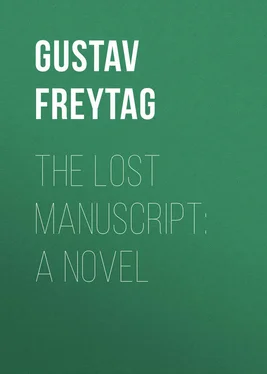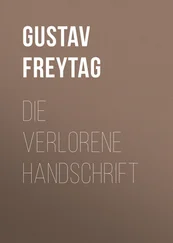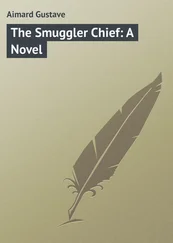Gustav Freytag - The Lost Manuscript - A Novel
Здесь есть возможность читать онлайн «Gustav Freytag - The Lost Manuscript - A Novel» — ознакомительный отрывок электронной книги совершенно бесплатно, а после прочтения отрывка купить полную версию. В некоторых случаях можно слушать аудио, скачать через торрент в формате fb2 и присутствует краткое содержание. Жанр: foreign_antique, foreign_prose, на английском языке. Описание произведения, (предисловие) а так же отзывы посетителей доступны на портале библиотеки ЛибКат.
- Название:The Lost Manuscript: A Novel
- Автор:
- Жанр:
- Год:неизвестен
- ISBN:нет данных
- Рейтинг книги:5 / 5. Голосов: 1
-
Избранное:Добавить в избранное
- Отзывы:
-
Ваша оценка:
- 100
- 1
- 2
- 3
- 4
- 5
The Lost Manuscript: A Novel: краткое содержание, описание и аннотация
Предлагаем к чтению аннотацию, описание, краткое содержание или предисловие (зависит от того, что написал сам автор книги «The Lost Manuscript: A Novel»). Если вы не нашли необходимую информацию о книге — напишите в комментариях, мы постараемся отыскать её.
The Lost Manuscript: A Novel — читать онлайн ознакомительный отрывок
Ниже представлен текст книги, разбитый по страницам. Система сохранения места последней прочитанной страницы, позволяет с удобством читать онлайн бесплатно книгу «The Lost Manuscript: A Novel», без необходимости каждый раз заново искать на чём Вы остановились. Поставьте закладку, и сможете в любой момент перейти на страницу, на которой закончили чтение.
Интервал:
Закладка:
"Look! There are the Indians of Mrs. Rollmaus."
A crowd of wild figures came on with quick step, one behind the other. In front a powerful man in a brown smock-frock and shabby hat, with a stout stick in his hand; behind him some young men, then women with little children on their backs; all around and about the troop ran half-naked boys and girls. Most of the strangers were bare-headed, and without shoes. Their long black hair hung about their brown faces, and their wild eyes, even from afar, shone covetously on the walking party.
"When the autumn comes, these people sometimes wander through our country. They are jugglers, going to the fair. But for some years they have not ventured into the neighborhood of our estate."
The troop approached; there was a wild rush out of the gang, and in a moment the friends were surrounded by ten or twelve dusky figures, who pressed on them with passionate gestures, loud cries, and outstretched hands-men, women, and children, in tumultuous confusion. The friends looked with astonishment on their piercing eyes and vehement movements, and on the children, who stamped with their feet, and clawed the strangers with their hands like madmen.
"Back, you wild creatures," cried Ilse, pushing herself through the throng, and placing herself before the friends. "Back with you. Who is the chief of this band?" she repeated with anger, raising her arm commandingly.
The noise was silenced and a brown gypsy woman, not smaller than Ilse, with shining hair arranged in braids and a colored handkerchief about her head, came out from the band, and stretched her hands toward Ilse.
"My children beg," she said; "they hunger and thirst."
It was a large face with sharp features, in which traces of former beauty were visible. With head bent forward, she stood before the young lady, and her sparkling eyes passed peeringly from one countenance to the other.
"We have money only for the men who work for us," answered Ilse, coldly. "For strangers who are thirsty, there is our spring; and to those who are hungry we give bread. You will get nothing more at our house."
Again dozens of arms were raised and again the wild crowd pressed nearer. The gypsy woman drove them back by a call in a foreign tongue.
"We wish to work, Mademoiselle," she said, in fluent German, with a foreign accent; "the men mend old utensils, and we drive away rats and mice from the walls; and if you have a sick horse, we will cure it speedily."
Ilse shook her head negatively. "We do not need your help; where is your pass?"
"We have none," said the woman; "we came from foreign parts," and she pointed to where the sun rises.
"And where will you rest to-night?" asked Ilse.
"We do not know; the sun is going down and my people are weary and barefooted," replied the gypsy woman.
"You must not rest near the farm nor near the village houses. The bread you will receive at the gate of the farm-yard; you may send some one there to fetch it. If you light a fire in any of our fields, take care not to go too near the sheaves; we shall look after you. Let none of you stroll about the estate or into the village to tell fortunes to people, for we do not permit it."
"We do not tell fortunes," answered the woman, touching a small black cross which she wore around her neck. "None here below know the future, nor do we."
Ilse bent her head reverently.
"Well said," said she. "According to the meaning which seems conveyed in your words, you do not remind me in vain of the communion which exists between us. Come to the gate yourself, mother, and await me there; if you need anything for your little ones, I will endeavor to help you."
"We have a sick child, my pretty young lady, and the boys are in want of clothes," begged the gypsy woman. "I will come, and my people shall do as you wish."
She gave a sign, and the wild troop tramped obediently along the side-road that led to the village. The friends looked with curiosity after the band.
"That such a scene should be possible in this country I could never have believed," cried the Doctor.
"They were formerly quite a nuisance to us," replied Ilse, with indifference; "they are seldom about, now. My father keeps strict order, and that they know right well. But we must go back to the farm-yard, for there can be no harm in caution with this thievish race."
They hastened back to the farm-yard. The Doctor lamented heartily that his intended journey prevented him from obtaining information from the strangers respecting the secrets of their language.
Ilse called the Inspector, and the intelligence that there were gypsies in the neighborhood flew like wildfire over the farm. The stables were guarded, the poultry and families of fatted pigs were put in the charge of stout maids, and the shepherds and ploughmen received orders to keep watch at night. Ilse called the children and gave them their supper, but found it difficult to control their excitement. The youngest were given over to Mademoiselle, and under strong protest and many tears were consigned to the secure protection of their beds. Then Ilse collected old gowns and linen, gave a maid two huge loaves, and prepared to go to the gate of the farm-yard, where the gypsy woman was to await her. The Doctor, in his joy about the strangers, had cast off all anxiety concerning his friend.
"Allow us to witness the interview with the sibyl," he begged.
They found the gypsy woman sitting in the dusk before the gate. Near her was a half-grown maiden, with brilliant eyes and long tresses, but scanty dress. The woman rose and received with a distinguished air the bounty which Ilse handed to her.
"Blessings on you, young lady," she exclaimed, "and may all the happiness that you now wish be your portion. You have a face that promises good fortune. Blessings on your golden hair and your blue eyes. I thank you," she concluded, bending her head. "Will not the gentlemen also give my little girl a keepsake?" The wild beauty held out her hand. "Her face is burnt by the sun; be kind to the poor dark girl," begged the old one, looking furtively round.
The Professor shook his head. The Doctor got out his purse and placed a piece of gold in the hand of the woman.
"Have you given up fortune-telling?" he asked laughingly.
"Misfortune visits those who prophesy and those who ask," replied the gypsy woman. "Let the gentleman be on his guard against all that barks and scratches, for there is mischief in store for him from dogs and cats."
Ilse and the Professor laughed. Meanwhile the eyes of the gypsy woman peered restlessly into the bushes.
"We cannot tell fortunes," she continued. "We have no power over the future. And we make mistakes, like others. But we see much, my beautiful lady. And though you do not desire it, yet will I tell it you. The gentleman near you seeks a treasure, and he will find it. But he must take care lest he lose it. And you, proud lady, will be dear to a man that wears a crown, and you shall have the choice to become a queen. The choice and the torment," she added in a lower tone, and her eyes again wandered unquietly about.
"Away with you," cried Ilse, indignantly; "such gossip does not agree with your professions."
"We know nothing," murmured the gypsy woman humbly, grasping the talisman at her neck. "We have only our thoughts, and our thoughts are idle or true, according to a more powerful will. Farewell, my pretty lady," she cried out impressively, and strode with her companion into the darkness.
"How proudly she walks away," exclaimed the Doctor. "I have much respect for the clever woman. She would not tell fortunes, but she could not help recommending herself by a bit of secret knowledge."
"She has long ago learnt all about us from the laborers," replied Ilse, laughing.
"Where have they pitched their camp?" asked the Doctor, with curiosity.
Читать дальшеИнтервал:
Закладка:
Похожие книги на «The Lost Manuscript: A Novel»
Представляем Вашему вниманию похожие книги на «The Lost Manuscript: A Novel» списком для выбора. Мы отобрали схожую по названию и смыслу литературу в надежде предоставить читателям больше вариантов отыскать новые, интересные, ещё непрочитанные произведения.
Обсуждение, отзывы о книге «The Lost Manuscript: A Novel» и просто собственные мнения читателей. Оставьте ваши комментарии, напишите, что Вы думаете о произведении, его смысле или главных героях. Укажите что конкретно понравилось, а что нет, и почему Вы так считаете.












